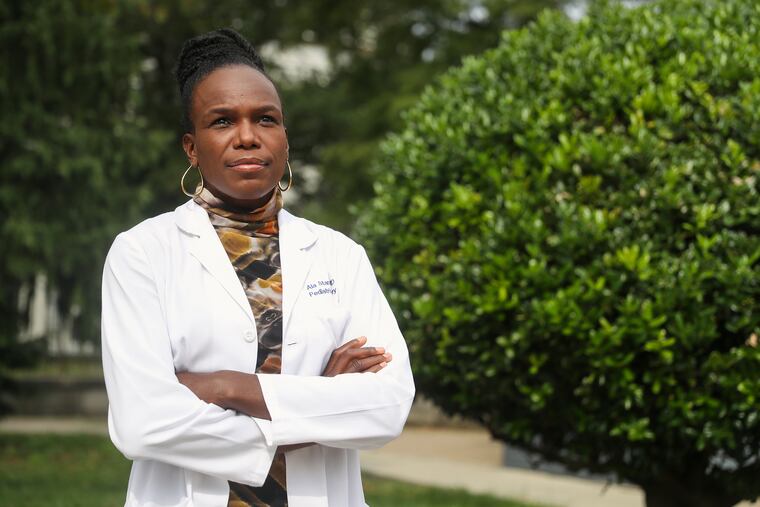Imagine if Black Doctors COVID-19 Consortium helped solve Philly’s other major health crises | Opinion
The city has learned the importance of trusting and partnering with Black and brown medical pros.

In Philadelphia today, your zip code determines your life expectancy. Neighborhoods just one mile apart can see average life expectancies that differ by 20 years. And this was before COVID-19 killed over 3,000 Philadelphians, the vast majority of whom are Black and brown people.
There is a multitude of factors that play into community health: social and economic conditions, the environment, the accessibility of healthy products like fresh and nutritious food, behavioral choices, and the health-care system. Nearly all of these factors are impacted by systemic racism. For generations, policies and programs influenced by systems ingrained with racial bias and outright discrimination have created the situation we find ourselves in today. Black and brown people are more likely to live in poverty, are more likely to have chronic health conditions, and are more likely to live near toxic pollution, all leading to lower life spans.
Affordability and access to health care is also a significant barrier to achieving better health outcomes for people of color. Black and brown people have less access to primary care and are less likely to be insured. They are also more likely to delay or go without needed care. Even when Black and brown people are able to get care, they are often faced with discrimination within the health-care system, especially from doctors who don’t take their concerns seriously and who lack important cultural competency.
With COVID-19, we saw all of these factors conflate. That’s when Ala Stanford stepped in. When she saw the alarming rates of COVID-19 infection and mortality in the Black community, she knew she needed to act. She partnered with trusted community leaders such as clergy, operated testing sites locally at trusted community anchor organizations, and recruited other health-care workers of color to bring health equity and access to the communities that needed it. Her work — and the dedication and time of all the members of the Black Doctors COVID-19 Consortium — has been exemplary: they have vaccinated over 25,000 Philadelphians, the vast majority of whom are people of color. We must look at the network she has built as the standard for increasing health equity and access in communities of color.
What we have learned from Stanford and her team is that we need to do things differently and reimagine the conventional thinking around who is providing health care and where it is located. It is not enough to have the best health-care institutions in the world. We must create a system that is built around the needs of our most vulnerable residents. We need to listen to Black and brown doctors and nurses and invest in them. We need to establish relationships with trusted community partners to share information, provide services locally, and connect people to resources.
The Black Doctors COVID-19 Consortium has done amazing work to deliver much-needed services to communities of color, but they cannot do it alone. Challenges remain in providing culturally competent care to many communities, especially immigrant communities who have a wide range of social, cultural, and linguistic backgrounds. The disability community has also faced significant barriers to quality care. While the Philadelphia Department of Public Health has created a racial equity plan for COVID-19, we are not seeing the immediate results we need because of the systemic challenges we continue to face to correct a system generations in the making. We must continue to invest and partner in the people who have built trust.
Wide-ranging, community-based, culturally competent public health care is the only way forward. The Black Doctors COVID-19 Consortium has demonstrated this type of system can be developed quickly and deployed at scale, even with limited resources. Imagine how effective we could be at tackling these significant health disparities with coordinated investment from local, state, and federal governments.
Katherine Gilmore Richardson is currently serving her first term as an at-large member of Philadelphia City Council. She is the youngest woman ever elected at-large and the youngest Black woman ever elected to City Council.